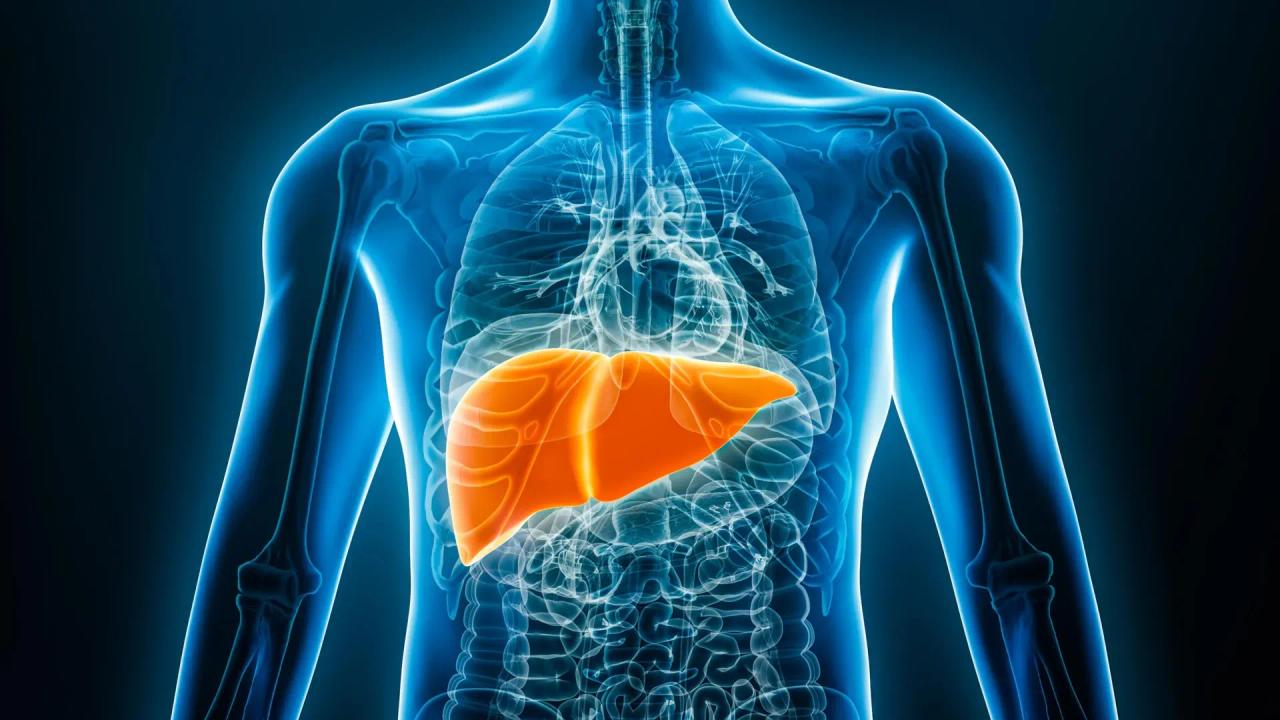EMA Approves AI Tool for MASH Clinical Trials: A Breakthrough in Liver Disease Research
4 Sources
4 Sources
[1]
EMA Approves AI Tool for MASH Clinical Trials
The European Medicines Agency (EMA) offered a positive opinion last week on a new artificial intelligence (AI)-based tool that supports pathologists in diagnosing and assessing the severity of metabolic dysfunction-associated steatohepatitis (MASH) during clinical trials. This is the first "qualification opinion" by the EMA's human medicines committee (Committee for Medicinal Products for Human Use [CHMP]) on an innovative development methodology based on AI. It means that the committee can now accept evidence generated by the tool as scientifically valid in future applications and assessments for new MASH treatments. MASH is a condition linked with obesity, type 2 diabetes, high blood pressure, abnormal cholesterol, and belly fat. It causes fat buildup in the liver, leading to inflammation, irritation, and scarring, even without significant alcohol use or other reasons for liver injury. If untreated, MASH, previously called non-alcoholic steatohepatitis (NASH), can lead to advanced liver disease. Liver biopsy is the gold standard for testing new investigational medicines for MASH. However, specialists reviewing samples may not always agree on the severity of inflammation or scarring they see, resulting in high variability of interpretations. This creates a challenge for clinical trials. Juan M. Pericàs, MD, MPH, PhD, team leader of the Liver, Metabolism and Infection group at Vall d'Hebron University Hospital, Barcelona, Spain, told Medscape Medical News that inter- and intraobserver disagreement on liver biopsy readings (especially for liver fibrosis stage and the presence and severity of hepatocyte ballooning) is the main cause of screening failure in MASH clinical trials, hindering interpretation of trial outcomes. The role of the expert pathologist will continue to be critical, he added, but the homogenous use of this type of tool "will likely lead to a more efficient and patient-centric scenario where investigators would be able to make the most of [a] liver biopsy." Pericàs was not involved in the tool's development. The new tool, called AI-based measurement (AIM)-NASH, uses a machine learning model that was trained on more than 100,000 annotations from 59 pathologists who assessed over 5000 liver biopsies in nine large clinical trials. An EMA spokesperson explained to Medscape Medical News that AIM-NASH can analyze whole image scans of liver biopsy specimens used in clinical trials investigating MASH treatments. The tool can help determine disease activity by evaluating steatosis, lobular inflammation, and hepatocellular ballooning, in addition to the fibrosis stage. It is used by a single central pathologist for enrolling patients into clinical phase 2 and phase 3 trials and for evaluation of study outcomes. Evidence submitted to CHMP showed that AIM-NASH biopsy readings could reliably determine MASH disease activity as verified by a pathologist. It offers less variability than the methodology currently applied in MASH clinical trials, which relies on consensus by panels of three independent human pathologists. This, in turn, increases reproducibility and repeatability of histologic assessments, the EMA told Medscape Medical News. The tool will help researchers "obtain clearer evidence on the benefits of new treatments in clinical trials that include fewer patients. Ultimately, this may bring effective treatments to patients faster," the EMA added. Pericàs said the development could boost the validation of noninvasive tests and biomarkers in a field that is steadily moving away from histology as a primary endpoint, particularly in routine clinical practice and clinical trials of MASH cirrhosis. As a result of the CHMP's opinion, the tool is now "locked," meaning it cannot be modified or replaced without requalification by the committee. Pericàs reported no relevant financial relationships.
[2]
EU health regulator clears use of AI tool in fatty liver disease trials
March 20 (Reuters) - A European Medicines Agency committee, on Thursday, accepted the use of an artificial intelligence (AI) tool called AIM-NASH in clinical trials to help identify the severity of a type of fatty liver disease. The condition, called metabolic dysfunction-associated steatohepatitis, or MASH, is a difficult-to-treat disease that affects around 1.5% to 6.5% of adults in the U.S., according to the American Liver Foundation. The AI-based AIM-NASH tool employs a machine learning model trained on more than 100,000 annotations from 59 pathologists who assessed over 5,000 liver biopsies across nine large clinical trials. The EMA's human medicines committee (CHMP) said evidence showed the AI tool can reliably determine disease activity from biopsies with less variability than the current standard in trials that rely on a consensus of three pathologists. On that basis, the CHMP concluded, it can accept evidence generated by the tool as scientifically valid, which will help researchers obtain clearer evidence on the benefits of new treatments in clinical trials. Currently, Madrigal Pharmaceuticals' (MDGL.O), opens new tab, Rezdiffra is the only U.S.-approved drug for MASH. Drugmakers such as Novo Nordisk (NOVOb.CO), opens new tab and Eli Lilly (LLY.N), opens new tab are also conducting trials with their blockbuster GLP-1 treatments to treat patients with the liver disease. Reporting by Christy Santhosh in Bengaluru; Editing by Savio D'Souza Our Standards: The Thomson Reuters Trust Principles., opens new tab Suggested Topics:Healthcare & PharmaceuticalsRegulatory OversightRegulatory
[3]
EU Health Regulator Clears Use of AI Tool in Fatty Liver Disease Trials
(Reuters) -A European Medicines Agency committee, on Thursday, accepted the use of an artificial intelligence (AI) tool called AIM-NASH in clinical trials to help identify the severity of a type of fatty liver disease. The condition, called metabolic dysfunction-associated steatohepatitis, or MASH, is a difficult-to-treat disease that affects around 1.5% to 6.5% of adults in the U.S., according to the American Liver Foundation. The AI-based AIM-NASH tool employs a machine learning model trained on more than 100,000 annotations from 59 pathologists who assessed over 5,000 liver biopsies across nine large clinical trials. The EMA's human medicines committee (CHMP) said evidence showed the AI tool can reliably determine disease activity from biopsies with less variability than the current standard in trials that rely on a consensus of three pathologists. On that basis, the CHMP concluded, it can accept evidence generated by the tool as scientifically valid, which will help researchers obtain clearer evidence on the benefits of new treatments in clinical trials. Currently, Madrigal Pharmaceuticals', Rezdiffra is the only U.S.-approved drug for MASH. Drugmakers such as Novo Nordisk and Eli Lilly are also conducting trials with their blockbuster GLP-1 treatments to treat patients with the liver disease. (Reporting by Christy Santhosh in Bengaluru; Editing by Savio D'Souza)
[4]
EU health regulator clears use of AI tool in fatty liver disease trials
(Reuters) -A European Medicines Agency committee, on Thursday, accepted the use of an artificial intelligence (AI) tool called AIM-NASH in clinical trials to help identify the severity of a type of fatty liver disease. The condition, called metabolic dysfunction-associated steatohepatitis, or MASH, is a difficult-to-treat disease that affects around 1.5% to 6.5% of adults in the U.S., according to the American Liver Foundation. The AI-based AIM-NASH tool employs a machine learning model trained on more than 100,000 annotations from 59 pathologists who assessed over 5,000 liver biopsies across nine large clinical trials. The EMA's human medicines committee (CHMP) said evidence showed the AI tool can reliably determine disease activity from biopsies with less variability than the current standard in trials that rely on a consensus of three pathologists. On that basis, the CHMP concluded, it can accept evidence generated by the tool as scientifically valid, which will help researchers obtain clearer evidence on the benefits of new treatments in clinical trials. Currently, Madrigal Pharmaceuticals', Rezdiffra is the only U.S.-approved drug for MASH. Drugmakers such as Novo Nordisk and Eli Lilly are also conducting trials with their blockbuster GLP-1 treatments to treat patients with the liver disease. (Reporting by Christy Santhosh in Bengaluru; Editing by Savio D'Souza)
Share
Share
Copy Link
The European Medicines Agency (EMA) has approved an AI-based tool called AIM-NASH for use in clinical trials to assess the severity of metabolic dysfunction-associated steatohepatitis (MASH). This marks a significant advancement in liver disease research and drug development.

EMA Approves AI Tool for MASH Clinical Trials
The European Medicines Agency (EMA) has taken a groundbreaking step in the field of liver disease research by approving an artificial intelligence (AI) tool for use in clinical trials. The Committee for Medicinal Products for Human Use (CHMP) has issued a positive opinion on AIM-NASH, an AI-based tool designed to support pathologists in diagnosing and assessing the severity of metabolic dysfunction-associated steatohepatitis (MASH)
1
.Understanding MASH and Its Challenges
MASH, previously known as non-alcoholic steatohepatitis (NASH), is a condition associated with obesity, type 2 diabetes, and other metabolic disorders. It affects approximately 1.5% to 6.5% of adults in the United States and can lead to advanced liver disease if left untreated
2
.The gold standard for testing new MASH treatments is liver biopsy. However, this method has been plagued by high variability in interpretations among specialists, creating challenges for clinical trials
1
.AIM-NASH: A Revolutionary AI Tool
AIM-NASH employs a machine learning model trained on over 100,000 annotations from 59 pathologists who assessed more than 5,000 liver biopsies across nine large clinical trials
3
. The tool analyzes whole image scans of liver biopsy specimens, evaluating disease activity by assessing steatosis, lobular inflammation, hepatocellular ballooning, and fibrosis stage1
.Advantages of AIM-NASH
The CHMP's approval is based on evidence showing that AIM-NASH can reliably determine MASH disease activity with less variability than the current standard, which relies on consensus from three independent pathologists
4
. This increased reproducibility and repeatability of histologic assessments is expected to:- Enhance the efficiency of clinical trials
- Reduce the number of patients required for studies
- Accelerate the development of effective treatments
Related Stories
Impact on MASH Research and Treatment
The approval of AIM-NASH is expected to have far-reaching implications for MASH research and treatment:
-
Faster drug development: By providing clearer evidence on the benefits of new treatments, AIM-NASH may expedite the process of bringing effective therapies to patients
1
. -
Improved trial outcomes: The tool's consistency may help reduce screening failures in MASH clinical trials, which have been hindered by disagreements in liver biopsy interpretations
1
. -
Validation of non-invasive tests: The development could boost the validation of non-invasive tests and biomarkers, potentially reducing the need for invasive liver biopsies in the future
1
.
Current MASH Treatment Landscape
Currently, Madrigal Pharmaceuticals' Rezdiffra is the only U.S.-approved drug for MASH. However, major pharmaceutical companies like Novo Nordisk and Eli Lilly are conducting trials with their GLP-1 treatments to address this liver disease
2
.References
Summarized by
Navi
[1]
[4]
Related Stories
AI Algorithm Detects Undiagnosed Early-Stage Liver Disease, Promising Improved Patient Care
18 Nov 2024•Health

FDA Approves AI-Powered Prostate Cancer Risk Assessment Tool, Marking a Milestone in AI Medical Devices
15 Aug 2025•Health

AI Model Detects Fatty Liver Disease in Chest X-Rays, Revolutionizing Early Diagnosis
28 Jun 2025•Health

Recent Highlights
1
ByteDance's Seedance 2.0 AI video generator triggers copyright infringement battle with Hollywood
Policy and Regulation

2
Demis Hassabis predicts AGI in 5-8 years, sees new golden era transforming medicine and science
Technology

3
Nvidia and Meta forge massive chip deal as computing power demands reshape AI infrastructure
Technology





